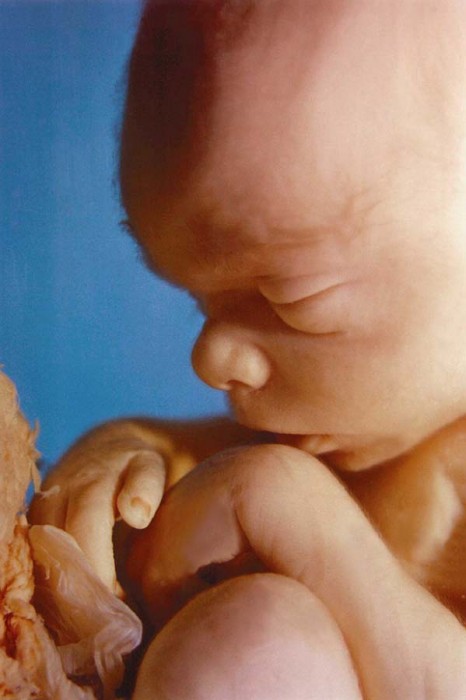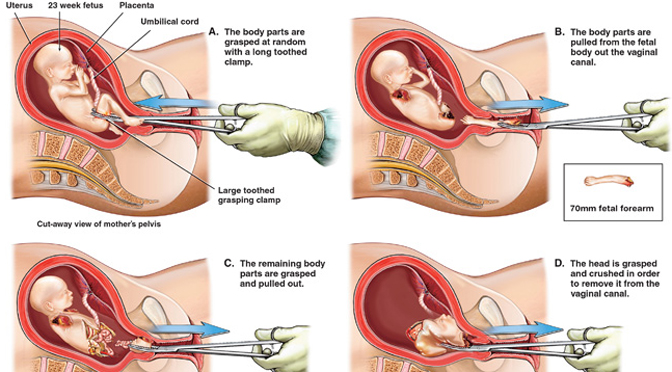
Abortionist discusses late-term abortion, stigma against abortionists
First, on the stigma abortionists face:
Stigma seems to be a common complaint among abortion providers. Clinicquotes has a whole collection of quotes from abortionists on this topic.There still persists to this day almost 40 years after Roe this perception that any doctor who would do abortions on a regular basis — not the casual, four patients once a year, but those who make it a part of their integrated practice — that they must be quacks or bad doctors. There’s this stigma of the abortionist that — two generations later — still looms large.
For example, abortionist Morris Wortman has said:
Another abortionist, quoted by Mark Crutcher, said:Abortion has failed to escape its back alley associations… [It is the] dark side of medicine…Even when abortion became legal, it was still considered dirty.
And there are many other examples.Abortion has always been viewed as a kind of subterranean thing. Children don’t go around saying, “my father is an abortionist.”
Next, Stanwood comments on how her patients have all rejected the possibility of adoption. She says:
Pro-lifers are often frustrated at how many women would rather kill their babies than let them to be adopted by loving families. Sometimes women say they don’t want their babies to be raised in a bad environment, so they choose to kill them instead, because they love them too much to let them suffer. It’s a very twisted way of thinking, and one that many pro-lifers find hard to understand. One explanation is that women in our society are exposed to so much pro-abortion propaganda that they are taught to think of abortion as the default answer to a baby’s potential suffering. After all, they are told, a preborn baby is not a human being yet.Only 1% of women with an unplanned pregnancy go forward with adoption in the US — very, very small. And I hear it from my patients for all different reasons: they never could do it, the interesting thing they say is that they don’t trust anybody else to raise their child. Will the child be loved? Will the child be well cared for? Again, it gets to the idea that they understand how important motherhood is …
Stanwood then goes on to talk about late-term abortion and the reasons women get them. She describes the situation of one woman:
A healthy, fully developed baby was killed in that abortion (see picture of a twenty week old baby below).… I had a patient who had an unplanned pregnancy, and she thought she and her partner could make it work. She was getting prenatal care, but at 20 weeks she found out that he was married, had children with his wife, and also had children with another woman. She had to totally re-evaluate her life plans. She had two children from a previous relationship who were a bit older, and she had been in a partnership to raise them, and now she was looking at, “Do I have this baby while I’m with this big fat liar? Do I have this baby alone?” So that she found out late that she need to reconsider her ability to have another child. And she needed a long time to think about it correctly … So she did; she did decide to have an abortion. It was later.

The baby was likely killed by a D & E, in which the abortionist dismembers the baby with forceps.

Stanwood also gave other reasons why women aborted late:
Note that despite pro-choicers’ claim that late-term abortions are only done on badly disabled babies or to protect a woman’s health, Stanwood does not even mention these reasons for late-term abortions. Women in the situations she does mention are going through hardships, but are their situations really serious enough to justify dismembering a baby that can feel pain , react to sound and light, sleep and wake, and learn and remember?Maybe she had irregular periods, she didn’t have Mother Nature’s early warning system. All kinds of reasons. Maybe she was raped — there’s another level of denial that goes with that. There’s also the decision-making process. Women assess all their responsibilities and resources, and ask — do I have enough to be a good mom and have a baby? For some people they do that really fast, and for other people it takes longer. Conversations about stress in a relationship, changes in employment status. Those decisions take longer. And then there’s the access to care — that gets into that issue of disparities. Poor women have to make the arrangements: time off work, time off school, childcare, travel. If you have a waiting period, you have to travel twice and it’s that much more expense. Those factors can all delay a woman.
Source: LiveAction News









No comments:
Post a Comment